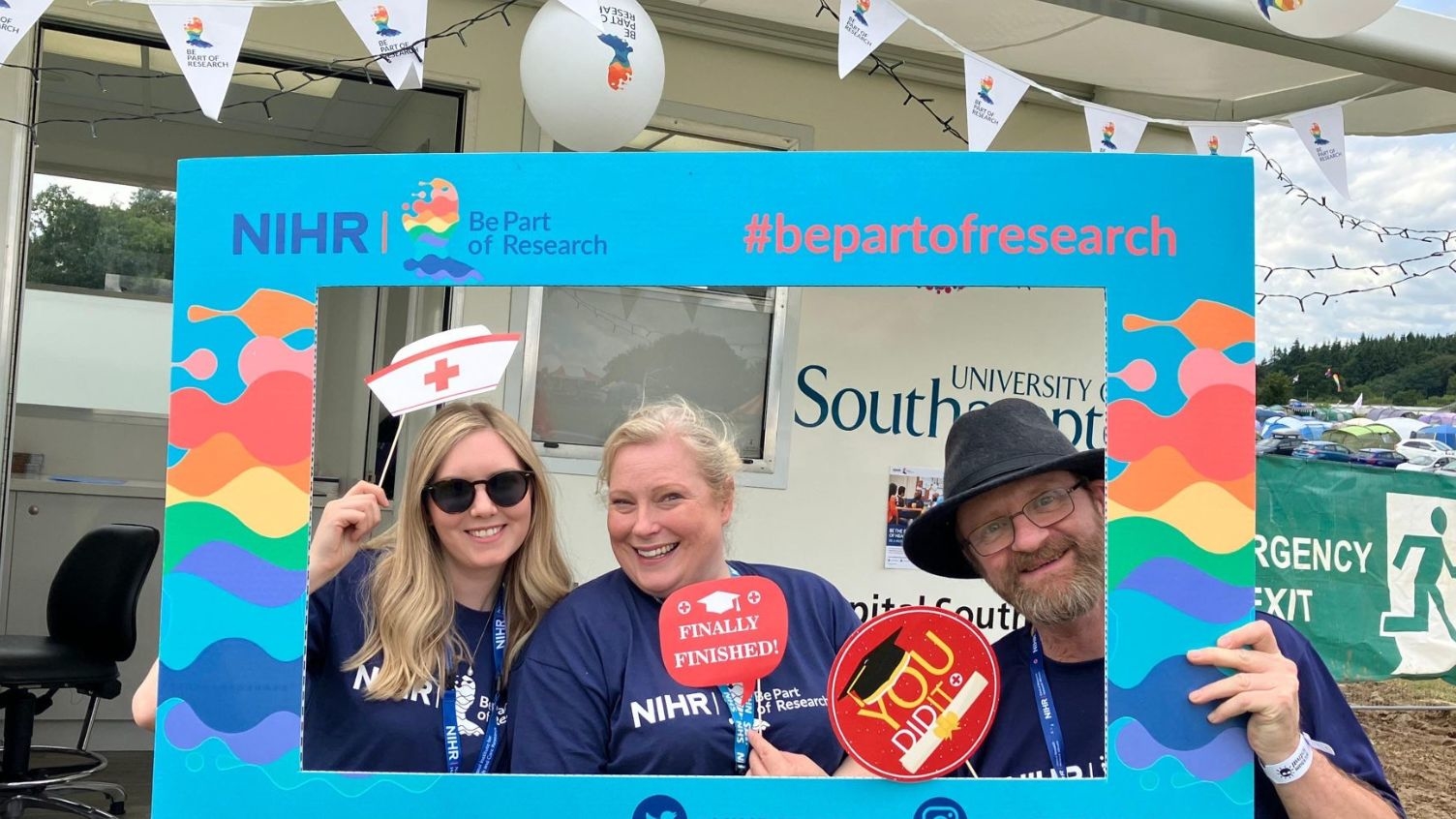No Going Back - how a mental health and community Trust has supported the COVID-19 research effort
- 10 June 2020
- 4 min read
Midlands Partnership NHS Foundation Trust's Head of Research & Innovation describes how the research team has risen to the COVID-19 challenge
Unique Challenges - and our response
By Ruth Lambley-Burke, Head of Research & Innovation, Midlands Partnership NHS Foundation Trust (MPFT)
The last few weeks have posed a series of unique challenges for our research team at MPFT, and it has been incredible to see how in the midst of such significant changes to everyone's working practice, our team has risen to the challenge; this has made us really proud. As a community, mental health and learning disabilities Trust we haven't been able to participate directly in many of those Urgent Public Health COVID-19 studies that have been targeted at acute clinical environments, but there has still been real opportunity for us to get involved.
MPFT acts as a step-down site, and a really positive outcome of this difficult time has been closer working between our research team and research colleagues from neighbouring acute Trusts, in order to support delivery of COVID-19 studies for those patients who are transferred to us.
Our research team has designed and implemented study specific processes to ensure seamless transition for step-down patients on the Recovery trial, a study which looks at drug treatments for those treated for COVID-19 in acute care settings. This collaborative approach offers huge scope for sharing of best practice and learning between teams, as well as mutual support and problem solving at a time of particular stress for research staff. This has given staff a real sense of achievement; as demonstrated by one of our research nurses who said: "I have really enjoyed the success of teamworking which facilitated the swift set up of the Recovery study.
"This ranged from forging new collaborative partnerships with research staff at the acute Trust, to excellent communication, guidance and support from our Trust clinical trials pharmacy department and the motivation and eagerness from our ward staff for many of whom this was their first acquaintance with research delivery."
We continued this collaborative approach for the ISARIC study, which collects clinical data for COVID-19, in order to ensure robust, high quality data for step-down patients; we hope this joint working will be a model for future studies.
Although unable to take part in some of the more cutting edge, exciting clinical trials for COVID, our research team has embraced the opportunity for those COVID studies that have fallen within our reach. One of our Clinical Research Practitioners said: "I have enjoyed leading on the ISARIC COVID-19 study, knowing that we (as a community trust) are supporting with global pandemic research which involves providing vital data to help with future resource planning."
This work, challenging and exhausting as it has sometimes been for our team, has seen a raised profile for research within our Trust, particularly on our step-down wards but also within the Trust as a whole. COVID-19 demonstrates the value of research as a real solution to the current health crisis, but also as a force for change and improvement in health services and health outcomes; I'm sure this increased visibility of research staff will create new opportunities for future research delivery within our Trust.
The need for home working as a result of the current crisis has actually brought as many benefits as it has created challenges; it has seen closer communication within MPFT's research team, as managers have been able to engage equally with all team members through video calls, whereas in the past geographical distance limited contact with some staff.
Home working has allowed staff the opportunity to be creative and innovative with problem solving, highlighted by one of our Research Nurses who said: "Remote meetings, reduced travel, and new IT resources have provided smarter working practice." Still, we shouldn't underestimate the challenges faced: one of our Clinical Research Practitioners summed up some of the challenges she has had to face and (successfully!) overcome: "Data queries! Remote IT challenges! As someone who worked mainly on mental health and dementia studies before this, as a result of working on the ISARIC study I've also now learnt more about physical health, treatments, pathogen testing, and the patient transfer process from acute Trusts, and I've had to find solutions for collating research data collected by colleagues working from home."
Our team has done amazingly well, and the integration of Clinical Research Network staff into MPFT's workforce has also brought added value to the team, and proved a huge source of support.
Our team has also focused its energies on promoting studies that can be completed by participants online, so the chance for staff, service users, carers, family and friends to take part in research hasn't been lost in the midst of this crisis. A real measure of success! It is also hoped that this health crisis may also generate opportunities for Patient and Public Engagement & Involvement (PPIE) and serve to direct future research; as expressed by one of our PPIE group members: "We are encouraged to suggest questions for research studies. The lock-down measures related to COVID-19 have revealed a number of issues hitherto hidden or ignored. Possibly such revelations will lead to research on these hidden/ignored issues"


